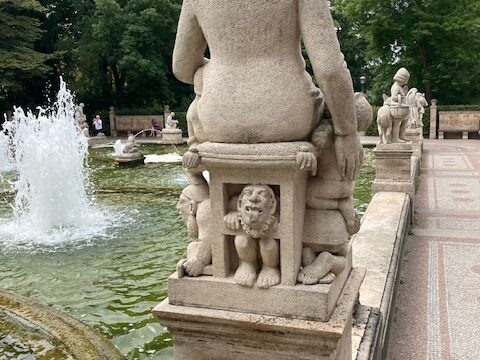
Fall 2024 Seminar: Logic, Mathematics, and the Direction of the Cure
Title: Logic, Mathematics, and the Direction of the Cure
Date and Time: September 28, Saturday, 10:00am-12:30pm PST
Place: By Zoom only
Registration: Contact Admin at PLACE@topoi.net
Availability: Open to new and continuing participants of PLACE/ Anyone participating
In the Internship division, should contact Admin before attending.
Level: None (no previous background required)
Instructor: Robert-Scully Groome
Starting this Fall semester, we return to a pressing question: What does bringing together formalization, psychoanalysis, and the clinic achieve? Responding to such a question already assumes a nontrivial definition of formalization, psychoanalysis, and the clinic. Instead of improvising a response and definition in the usual manner, our past two years of seminars, Number & Symptom and The Logic of Repetition, have attempted to provide the material and constructive means to respond with both specific textual references to the oeuvre of Freud/Lacan and relevant works of literature, linguistics, logic, and mathematics (our position being there is no such thing as ‘Lacanian topology’, ‘mathematics’, or ‘logic’, just topology, mathematics, and logic).
Throughout the 2023 Fall and Spring semesters, we identified a point of entry to the clinic of mathematics and logic: when Lacan began to call a discursive symptom (Les Complexes Familiaux, 1938) what Freud had previously called a psychosis: a way of working with the shadow of an object and not the object itself. One example among many, the umbra de nombre, was used to identify an equivocation inherent to any mathematical text: the moment a number is written down it becomes a numeral. The question of how to write a number that does not get confused with a numeral creates a foundational problem for the modern theory of sets and categories. Our intervention, being less ambitious, was to show how such discursive symptoms not only create issues for contemporary formalizations and our modern institutions but havoc in the family.
If last semester we focussed on isolating the equivocation between number and numeral as a discursive symptom of the clinic, this semester we begin with another simple problem: ask a professor of logic to define material implication, or what Quine calls the conditional, and you are most likely to discover another discursive symptom. Before attending the first seminar in September, each participant is invited to explain material implication to themselves, a friend, or a family member to get a first-hand experience of what is at stake
Prior to 2023, we had worked on constructing Freudian repetition in a way that distinguishes it from the common philosophical notions of the eternal return (Nietzsche, Klossowski, Deleuze, and friends). To do so, we reformulated repetition into a logic of separation in the manner of Lacan by using Venn diagrams transcribed into propositional logic and a Boolean ring. This would be the first time in the Anglo-phone-speaking countries that such a logic has been presented algebraically and diagrammatically alongside its clinical dimensions (these presentations were based on lessons received from J.M.Vappereau, R. Guitart, and J. Petitot in France).
This Fall 2024 semester, we return to these foundational questions of the clinic, formalization, and psychoanalysis, but with a tighter logical grip on the problem of separation and a focus on its implication for the analytic cure. What specifically is the analytic cure? And what direction has it taken today? How does the formalization of the transfer, and what Lacan would entitle, L’Instance de la Lettre, provide the conditions for a logical construction of separation?
Beyond the varied responses to such questions, what will be found invariant is a specifically Freudian epistemology situating the resistance of the transfer: a kind of silence established in a reason that still goes unheard of in our modern-day institutions and democracies. Many today are familiar with this resistance and its reasons; refusing to make it their job to become a ‘shrink’ or publish whatever in the name of psychoanalysis or any other field. Yet, if successful this semester, one of the consequences of responding to such questions is that, whereas we have traditionally become accustomed to considering the cure in analogy with the medical clinic and psychotherapy – as separating from a kind of disease or calming an anxiety – we now have to recognize the necessity of a non-pathological separation and learn to read and write it rather than heal and calm it.
Text
1. Any good logic or mathematical logic book will do. I have always proposed Quine's Methods of Logic.
2. When referencing the questions of the cure and the problem of separation, the Fall 2024 seminar will cover a span of six years, from 1958 to 1964, but only two articles, La direction de la cure et les principes de son pouvoir and Position de l’inconscient and one seminar, Les Fondements de la psychanalyse will be required. The other readings during this period are only considered facultative. I have left the titles in French since many are either mistranslated in English or mistranscibed from the original.
| Année | Écrits | Séminaires |
| 1958 | La direction de la cure et les principes de son pouvoir ; La signification du phallus | Le Séminaire VI: Le désir et son interprétation |
| 1959 | L'instance de la lettre dans l'inconscient ou la raison depuis Freud | Le Séminaire VII: L'éthique de la psychanalyse |
| 1960 | Subversion du sujet et dialectique du désir dans l’inconscient freudien | Le Séminaire VIII: Le transfert |
| 1961 | Fonction et champ de la parole et du langage en psychanalyse | Le Séminaire IX: L'identification |
| 1962 | Remarques sur le rapport de Daniel Lagache : 'Psychanalyse et structure de la personnalité' | Le Séminaire X: L'angoisse |
| 1963 | D’un discours qui ne serait pas du semblant (texte inédit de 1963) | Le Séminaire XI: Les Fondements de la psychanalyse |
| 1964 | Position de l’inconscient | " |